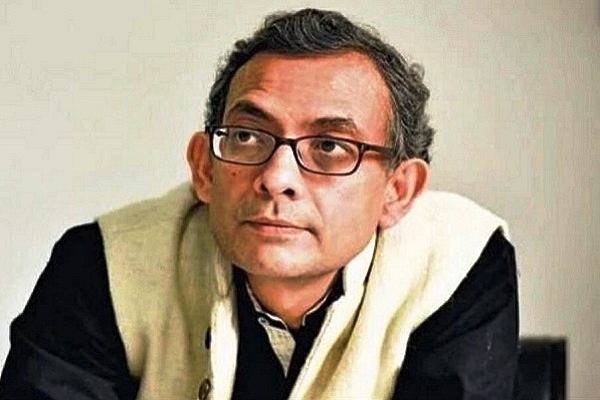News Brief
Tihar Jail And Congress’s Failed Bid To Lure Voters With NYAY: Here’s All About Economics Nobel Abhijit Banerjee

Abhijit Banerjee (Pic via Twitter)
The Sveriges Riksbank Prize in Economic Sciences in Memory of Alfred Nobel 2019, or the Economics Nobel, was awarded jointly to Abhijit Banerjee, Esther Duflo and Michael Kremer on Monday (14 October).
Banerjee is an India-born American citizen.
Notably, Banerjee and Duflo, both professors at MIT, are married and are the sixth married couple to win the Nobel prize, while Michael Kremer is a professor at the Harvard University.
All three were recognised for their “experiment-based approach” in tackling global poverty, and using randomised control trials to discover which educational outcomes or child health initiatives actually work.
The Royal Swedish Academy of Science quoted:
“The Laureates’ research findings – and those of the researchers following in their footsteps – have dramatically improved our ability to fight poverty in practice. As a direct result of one of their studies, more than five million Indian children have benefited from effective programmes of remedial tutoring in schools.
Another example is the heavy subsidies for preventive healthcare that have been introduced in many countries.”
Their approach is similar to conduction of clinical trials in pharmaceutical industry- applying theory to real-life situations using randomised trials and assessing the outcomes.
In an experiment the duo conducted in Rajasthan few years ago, they started distribution of pulses in the immunisation programme to tackle the low turnout rate despite free vaccination.
In another such experiment, Banerjee and Duflo investigated the causes behind poor school performance of children, whether it was low availability of textbooks, hunger, or something else. They found out that there was a gap between teaching and the learning abilities of the students.
They found out that providing teaching assistants to support students with special needs improved the learning outcomes.
The Congress leader Rahul Gandhi said that Banerjee had helped the party conceptualise its "Nyay" scheme, and congratulated him on the Nobel.
In an interview with Times of India, Banerjee said that for him, his method of ‘randomised control trials’ represents a movement, which is based on important principles of scepticism, not being intimidated by authority, willingness to ask questions about established truths and common wisdom.
He adds that they are already working with various state governments in India, and the Nobel will further strengthen their outlook among people, government and even in the academia.
About Abhijit Banerjee
Abhijit was born in Mumbai on 21 February 1961. Both his parents were professors in economics in Calcutta, which might explain his keen interest in the subject. He did his graduation in economics in Presidency college, which now has produced two Nobel laureates.
Banerjee completed his M A in economics from Jawaharlal Nehru University in 1983. Afterwards, he obtained his PhD in economics at the Harvard University in 1988.
Interestingly, Banjerjee has also spent time in Delhi's Tihar jail for 'gheraoing' the then vice-chancellor of the JNU. The police force sent by the then Congress government. In a piece written for Hindustan Times in February 2016, Banerjee said that he was held in the police custody for 10 days and beaten up.
He also said that the professors at the time who were predominantly leftist were on the side of Congress government. Ironically, later in their careers, Banerjee along with the wife Duflo went on to cooperate with the Congress party in different areas.
Banerjee was earlier married to Dr Arundhati Tuli Banerjee, a lecturer of literature at MIT and had a son with her, before they were separated.
In 2012, Abhijit had a child with Duflo and eventually the couple got married in 2015. Duflo was Banerjee's doctoral student when the two met, reports News18. Together they are working in the field of development economics.
Banerjee, who is at present the Ford Foundation International Professor of Economics at the MIT, has co-founded Abdul Latif Jameel Poverty Action Lab (J-PAL) with Duflo.
J-PAL is a global research centre working to reduce poverty by ensuring that policy is informed by scientific evidence.
It conducts randomised impact evaluations to answer critical questions in the fight against poverty, and builds partnerships with governments,NGOs, donors, and others to generate new research, share knowledge, and scale up effective programs.
Introducing ElectionsHQ + 50 Ground Reports Project
The 2024 elections might seem easy to guess, but there are some important questions that shouldn't be missed.
Do freebies still sway voters? Do people prioritise infrastructure when voting? How will Punjab vote?
The answers to these questions provide great insights into where we, as a country, are headed in the years to come.
Swarajya is starting a project with an aim to do 50 solid ground stories and a smart commentary service on WhatsApp, a one-of-a-kind. We'd love your support during this election season.
Click below to contribute.
Latest